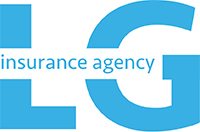As a professional, what kinds of insurance do you really need? Will a general liability policy be enough to protect you and by extension your business in the event of some kind of unfortunate or unforeseen scenario?
Accountants, insurance agents, attorneys, any kind of professional whose business is a service has more than a simple liability policy to consider in order to make certain they and their business are insured appropriately. Let’s discuss the kinds of policies professionals should have in place, and why each of these types of policies are important.
When we think of small businesses, our mind often heads straight to shop owners, restaurants, retailers- but service professionals are also small business owners- and while they may have some similar needs to protect their small business, there are other aspects of what their business entails that make their needs very different.
General Liability
General liability coverage is essential for all kinds of businesses and business owners. In New Jersey, most businesses are required by the state to hold a general liability policy, though they have a choice in deductibles and policy limits within their coverage. General liability is needed to protect businesses from damages, both direct or indirect, to another party. In the event of some kind of damage caused by the actions of your business or your employees, your General Liability policy will pay for things like property damage or personal injuries involving your clients, visitors to your business, or subcontractors.
Professional Liability, or Errors and Omissions (E&O)
Professional liability, or Errors and Omissions Insurance, has the primary function of dealing with financial loss. Any professional that handles transactions or advises on transactions for their clients- lawyers, contractors, accountants, insurance agents, real estate agents, and so on, will be in need of a professional liability policy.
Even the least error-prone professionals on earth should have an E&O policy in place. The best lawyers, accountants, and agents out there are still vulnerable to being sued by a client for a perceived error or mistake in judgement that they view as the cause of their financial loss.
A common mistake among professionals when selecting policies and coverage is to assume that they won’t need an E&O policy. “I’m an excellent lawyer, I know my stuff, I’m not likely to make a mistake, I don’t need this policy,” is the general attitude. However, it’s important to remember that even the professionals with the greatest levels of expertise may make a small error- or, that a client will perceive that they have made an error, true or not- and that can lead to litigation.
In the event that there is an actual error, or significant mistake made by the professional or their office, E&O will protect the insured should that situation arise. A common misconception held by those reluctant to take on the additional expense of E&O insurance is that their business insurance or general liability policy will protect them in the event of an error, negligence, inaccurate advice, or perception that any of those occured- and unfortunately that is simply not the case. This makes having an E&O policy a vital layer of protection for any professional that handles or advises their clients regarding transactions.
Cyber Security Liability
Cyber security liability is yet another aspect of complete coverage for professionals that many aren’t aware they need. Cyber security insurance is needed for any business where sensitive data is handled. When you consider how much sensitive personal data nearly any professional will handle in the course of business, that means all of them are in need of cyber security liability protection.
The purpose of cyber security liability is to safeguard businesses when credit card numbers, personal information, or other data is compromised. Whether stolen by hackers, disgruntled former employees, or infected by malware- cyber liability insurance covers legal fees, essential resources, and the costs of notification of affected parties. With the broad range of potential cyber attacks increasing in frequency in a more and more digital and interconnected world, any business is at risk for data breaches, cyberattacks, and cyber extortion.
Despite that being the case, there are many professionals who treat cybersecurity policies in much the same way that they approach E&O insurance. “Oh, I don’t need that. I don’t have anything to worry about.” Unfortunately, taking that risk can prove very expensive. Client files are a wealth of digital information that hackers and others may find very tempting.
One client of ours, an attorney, had what qualifies as a small breach at their business. The costs of just duty to notify alone, getting situated and regrouping, along with legal fees bore out at $40,000. That’s a significant cost to any business, especially a small one. It’s never safe to assume that “it won’t happen to me.” Insurance is part of the cost of doing business, of course- and though the additional layers of protection may seem optional, or as add-ons, they’re really part of a suite of necessary expenses to prevent major losses down the road.
There are a variety of risks and risk levels associated with various professional occupations. When an insurance professional is developing a recommendation for your business as a service professional, it’s more complicated than assessing the risks associated with a restaurant, for example. Underwriters will be looking at the applications, for the most part, and complete and accurate information is needed for the insurance professional to attest to and sign off on applications.
Different exposures and different risks are associated with an individual business. An attorney’s area of expertise, or typical clients, may come into play. Insurance professionals need to ask a lot more specific questions in order to get an accurate risk assessment and offer the most complete and accurate coverage. While other small businesses may be able to receive quotes in less time, professionals require a longer window- typically 2-3 weeks, in order to ascertain all the needed information, dot every I and cross every T.
Attorneys require additional time and attention especially as they are more likely to be on the receiving end of a claim. When an attorney’s client loses a case, they may then choose to get a different attorney and sue the previous one for perceived mishandling of their case. Due to this tendency, attorneys are in a position of higher risk- and benefit even more solidly from having a full suite of professional insurance policies- particularly the E&O policy.


